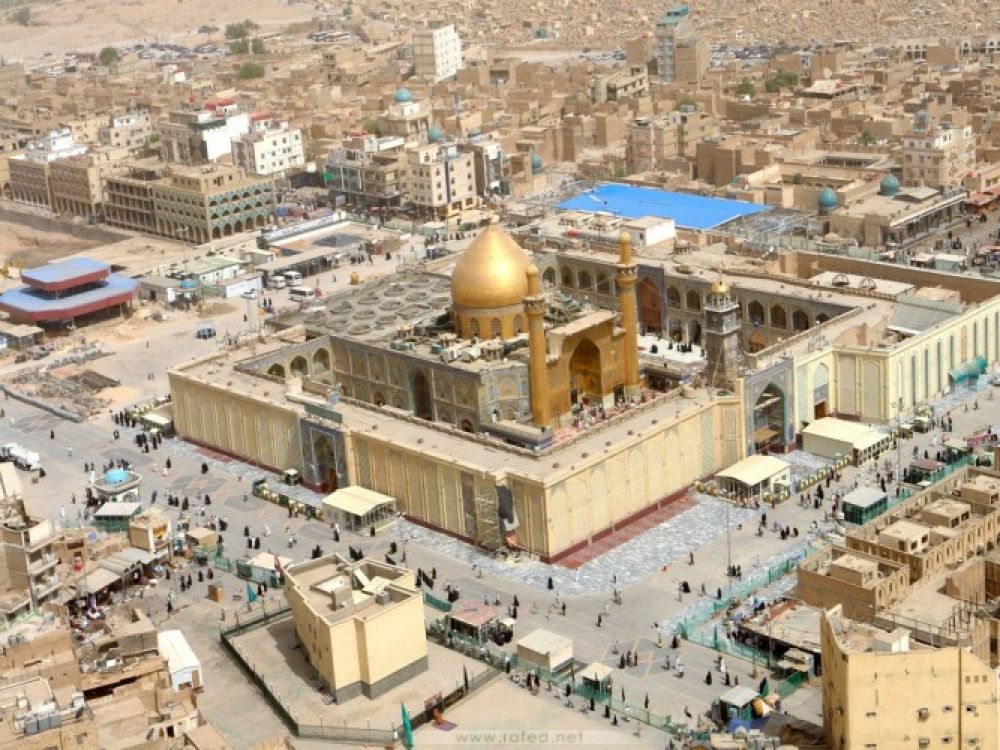Najaf, one of Iraq's most holy cities for Shia Muslims, is situated approximately 160 kilometers south of Baghdad. The city's origins date back to the 8th century and it houses the Imam Ali Shrine, where Ali ibn Abi Talib, the cousin and son-in-law of the Prophet Muhammad, is buried, making it a significant religious hub. Every year, millions of pilgrims visit the shrine, contributing to Najaf's status as a center for theological study and religious instruction. Its religious institutions, such as the Al-Hawza Al-Ilmiyya, are among the oldest in the Muslim world. Besides its religious significance, Najaf also plays a key economic role due to the influx of pilgrims and has a cultural heritage evidenced by its historic sites and libraries. The Wadi-us-Salaam cemetery, one of the largest in the world, is also located in Najaf. The city's dusty, arid climate reflects the harsh desert environment that surrounds it, with very hot summers and relatively mild winters. Despite the political and social turmoil that has affected Iraq, Najaf remains a city of monumental importance, resilience, and deep historical roots.

